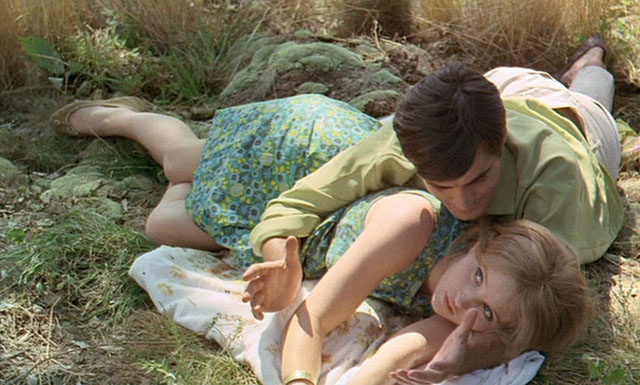Varda’s satirical idea is that family happiness depends on male arrogance and female docility. She suggests that if wives are replaceable, a man can lose one and plug in another. Voila, happiness.
François Chevaliers supposes that a husband needs a mistress to keep his masculinity and have better sex with his wife, Thérèse.
Though Thérèse suspects something is not right in her marriage, she’s appalled when François leans over and tells her that he’s having an affair. He thinks being “honest” ought not to make her upset. He’s telling her this because he cannot live a lie. Besides, if having a mistress makes him happy, she ought not to be upset. He wants to go on a threesome. Thérèse ought to be furious; instead, she allows him to make love to her. The children are playing somewhere and do not bother them.
Predictably for Thérèse, it’s awful sex. But François is so pleased and so self-absorbed he wanders off with the children so that she can rest. However, Thérèse is awake and deep in thought, and unwilling to go on as a menage-a-trois, she runs to the nearby lake and drowns herself. 
François’ sadness is of short duration, and as if changing his shirt, he installs his mistress Émilie as a housewife and surrogate mother. Now, as before, when François takes Émilie and the children for picnics, you’d never know it’s Émilie and not Thérèse walking with the children.
The cast: Olivier Drouot as François Chevalier; Claire Drouot as Thérèse Chevalier; Marie-France Boyer as Émilie Savignard
See Agnes Varda. Le Bonheur (1964). Screenplay is by Agnes Varda; Streaming on Archive.com

